第124章
The goodness of these Indians, like that of most others amongst whom I lived, consisted perhaps more in the absence of active bad qualities, than in the possession of good ones; in other words, it was negative rather than positive.Their phlegmatic, apathetic temperament, coldness of desire and deadness of feeling, want of curiosity and slowness of intellect, make the Amazonian Indians very uninteresting companions anywhere.Their imagination is of a dull, gloomy, quality and they seemed never to be stirred by the emotions--love, pity, admiration, fear, wonder, joy, orenthusiasm.These are characteristics of the whole race.The good fellowship of our Cucamas seemed to arise not from warm sympathy, but simply from the absence of eager selfishness in small matters.On the morning when the favourable wind sprung up, one of the crew, a lad of about seventeen years of age, was absent ashore at the time of starting, having gone alone in one of the montarias to gather wild fruit.The sails were spread and we travelled for several hours at great speed, leaving the poor fellow to paddle after us against the strong current.Vicente, who might have waited a few minutes at starting, and the others, only laughed when the hardship of their companion was alluded to.
He overtook us at night, having worked his way with frightful labor the whole day without a morsel of food.He grinned when he came on board, and not a dozen words were said on either side.
Their want of curiosity is extreme.One day we had an unusually sharp thunder shower.The crew were lying about the deck, and after each explosion all set up a loud laugh; the wag of the party exclaiming: "There's my old uncle hunting again!"-- an expression showing the utter emptiness of mind of the spokesman.
I asked Vicente what he thought was the cause of lightning and thunder...He said, "Timaa ichoqua,"--I don't know.He had never given the subject a moment's thought! It was the same with other things.I asked him who made the sun, the stars, the trees...He didn't know, and had never heard the subject mentioned amongst his tribe.The Tupi language, at least as taught by the old Jesuits, has a word--Tupana--signifying God.Vicente sometimes used this word, but he showed by his expressions that he did not attach the idea of a Creator to it.He seemed to think it meant some deity or visible image which the whites worshipped in the churches he had seen in the villages.None of the Indian tribes on the Upper Amazons have an idea of a Supreme Being, and consequently have no word to express it in their own language.
Vicente thought the river on which we were travelling encircled the whole earth, and that the land was an island like those seen in the stream, but larger.Here a gleam of curiosity and imagination in the Indian mind is revealed: the necessity of a theory of the earth and water has been felt, and a theory has been suggested.In all other matters not concerning the common wants of life, the mind of Vicente was a blank and such I always found to be the case with the Indian in his natural state.Would a community of any race of men be otherwise, were they isolated for centuries in a wilderness like the Amazonian Indians, associated in small numbers wholly occupied in procuring a mere subsistence, and without a written language, or a leisured class to hand down acquired knowledge from generation to generation?One day a smart squall gave us a good lift onward; it came with a cold, fine, driving rain, which enveloped the desolate landscape as with a mist; the forest swayed and roared with the force of the gale, and flocks of birds were driven about in alarm over the tree tops.On another occasion a similar squall came from an unfavourable quarter; it fell upon us quite unawares, when we had all our sails out to dry, and blew us broadside foremost on the shore.The vessel was fairly lifted on to the tall bushes which lined the banks, but we sustained no injury beyond the entanglement of our rigging in the branches.The days and nights usually passed in a dead calm, or with light intermittent winds from up river, and consequently full against us.We landed twice a day to give ourselves and the Indians a little rest and change, and to cook our two meals--breakfast and dinner.There was another passenger besides myself--a cautious, middle-aged Portuguese, who was going to settle at Ega, where he had a brother long since established.He was accommodated in the fore-cabin, or arched covering over the hold.I shared the cabin-proper with Senores Estulano and Manoel, the latter a young half-caste, son-in-law to the owner of the vessel, under whose tuition I made good progress in learning the Tupi language during the voyage.
Our men took it in turns, two at a time, to go out fishing-- for which purpose we carried a spare montaria.The master had brought from Barra as provision, nothing but stale, salt pirarucu--half rotten fish, in large, thin, rusty slabs--farinha, coffee, and treacle.In these voyages, passengers are expected to provide for themselves, as no charge is made except for freight of the heavy luggage or cargo they take with them.The Portuguese and myself had brought a few luxuries, such as beans, sugar, biscuits, tea, and so forth; but we found ourselves almost obliged to share them with our two companions and the pilot, so that before the voyage was one-third finished, the small stock of most of these articles was exhausted.In return, we shared in whatever the men brought.